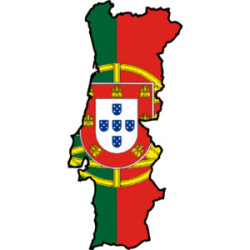Portugal To Open Up iGaming Market On June 28th

On June 28th, Portugal is set to end the Santa Casa da Misericordia’s (SCML) state run monopoly over the country’s online gambling industry and finally open its market up to international operators. The new iGaming reform bill had been under legal consideration since June 2014, but has finally been approved by the Council of Ministers, and signed into law by President Aníbal António Cavaco Silva. International online gambling operators can now apply for licenses to offer their products in the Portuguese market, with the new EU compliant regulation set to earn the country located on the Iberian Peninsula around €25 million ($28 million) a year from online gambling licensing fees.
Pressure From EU
While all types of gambling are currently legal in Portugal, including the lottery, casinos, sports betting, and internet gambling, up until now the centuries old SCML religious foundation has been the sole gambling provider in the country. Despite drawing heavy criticism from Brussels who called for the free movement of services across EU countries, Portugal seemed content to maintain its monopoly over the industry. However that situation changed after the country received a €78 billion rescue package from the Troika (ECB, EC and IMF) in 2011 following the financial crisis which left the country close to bankrupt. As a result Portugal subsequently agreed to liberalize its online gambling market, although almost four years would pass before the country’s politicians would eventually agree on a regulatory framework.
EU Compliant
Portugal’s government has assured the European EU its remote gambling bill is in line with European regulations on fair competition and business practices, and following announcement of the news the Council of Ministers stated:
“The bill will proceed with the regulation of online gambling in line with the recommendations issued by the EC on this matter and the international best practices. Licenses will be awarded to all the companies that will ensure the full respect of a set of financial, economic and technical requirements.”
Remote Gambling Bill Details
The Santa Casa de Misericordia de Lisboan will be responsible for all online gambling regulation and also for the issuing of three year gambling licenses. Furthermore, players funds will be protected by licensees having to lodge financial guarantees at Portuguese financial institutions.
However, the remote gambling bill places no limit on the number of international operators who can apply for iGaming licenses, and once validated a company will then be allowed to advertise its products on all the country’s approved national media, whilst being subject to the same set of rules as companies marketing alcohol.
“We are preparing everything so that on June 28 the technical control structure is operating. The intention is to sign up as many operators as possible, particular international ones,” commented Adolfo Mesquita Nunes, Portugal’s Secretary of State for Tourism.
Gambling businesses will subsequently be required to pay an 8% to 16% tax rate for sports wagering, rising to between 15% and 30% for casinos games. However, the gamblers themselves will not be taxed on their winnings, which should act as a good marketing ploy to attract more players to the online games. Also, Portuguese players will be able to compete against players from foreign countries, which should give its online poker industry a boost, unlike the ring-fenced markets of France, Spain and Italy.
Tax Controversy
Portugal’s new regulated, taxed iGaming landscape should help put an end to foreign casinos enjoying tax free revenues, whilst draining money away from the country’s ailing economy. However, local gambling operators have criticized the new tax regime as being too high, whilst decrying the beneficial arrangement agreed with Santa Casa da Misericordia’s (SCML), which will still be allowed to maintain an offline sports-betting monopoly, whilst paying 50% less tax than its internet rivals. As Clive Hawkswood from the Remote Gambling Association (RGA), explains:
“Such a differential has the potential to create a situation of substantial illegal state aid being granted to Santa Casa by the Portuguese government whilst also destroying any hope for fair competition in a future regulated online sports betting government.”
Moreover, PricewaterhouseCoopers (PwC) has speculated that the new regime which taxes turnover instead of revenues may in fact force 80% of licensed operators to quit Portugal’s regulated market within the first year, and subsequently cost the country €20 million in lost tax revenue during its first three years.
Nevertheless, Portuguese ministers responded by emphasizing that the new legislation is in line with EU regulations, and highlighted all the added benefits legalized online gambling advertising can bring sports betting businesses, with all the added sponsorships and advertising revenue it will attract.










